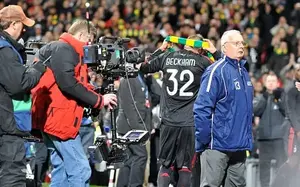
A new club in Milton Keynes
Only created in 1967, the town of Milton Keynes had no football team to call its own. Overseeing the town's planning, the Milton Keynes Development Corporation set about rectifying that problem by constructing a stadium capable of accommodating a top-flight team. Initially approaching Luton Town, who were based just 20 miles away, the corporation's ideas were well received by the club's owners, only to be rubbished by fans. Protest marches were held throughout the 1983/84 season and a plane flew over Kenilworth Road during one match with a banner reading "Keep Luton Town FC in Luton". When 18,000 Luton residents signed a petition against the club leaving, the idea was soon dropped.
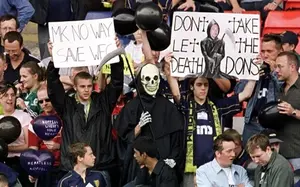
Almost 20 years later the Milton Keynes Stadium Consortium, led by Pete Winkelman, was formed and proposed a 30,000-capacity football stadium as part of a major new retail development. All they needed was a team to fill it. Winkelman spoke to Luton (again), Barnet, Crystal Palace and QPR, before finding a debt-ridden Wimbledon most receptive. While the club's owners insisted the move was the only way to survive, it was opposed by the majority of Wimbledon fans, as well as the Football Association and a 150-man Parliamentary All-Party Committee. After many legal battles, the move was eventually approved in 2002.
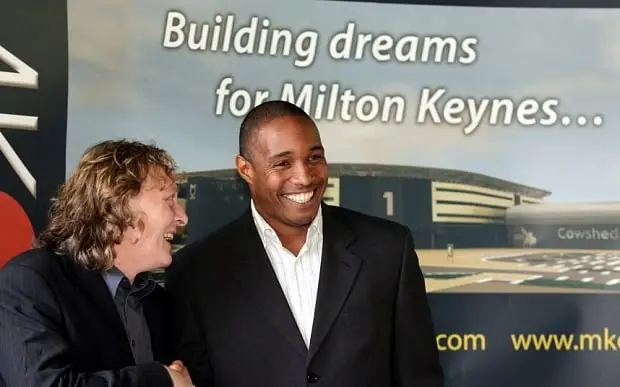
Within weeks a group of disaffected Wimbledon fans founded a new team - AFC Wimbledon - and joined the Combined Counties League, while the old Wimbledon was renamed MK Dons a couple of years later. Speaking in 2012, Winkelman said he was "not proud" about how the club came to exist, but insisted that Wimbledon had been "hours away from liquidation".
A political party to save the Valley
With the Valley Stadium in need of major improvements and Charlton Athletic unable to finance them, the club moved out in September 1985 to ground-share with rivals Crystal Palace at Selhurst Park. The move was understandably unpopular and, when funding was later found for the redevelopment, Charlton proposed a new stadium to surround the original pitch.
Denied the proposals by Greenwich Borough Council, supporters then formed their own local political party, named the Valley Party, in response to the council's refusal and contested 60 out of 62 seats in the 1990 local elections, sparing the two councillors who had approved the new stadium plans. The party won 14,838 votes - nearly 11 per cent of the vote - and successfully pressured the council to approve the plans for the new stadium. It opened in December 1992.
Thames Valley Royals
When Robert Maxwell, then owner and chairman of Oxford United, announced before the end of the 1982/83 Football League season that he had made a deal to merge with Reading to create a new club called the Thames Valley Royals, it did not go down brilliantly with supporters of either club. Maxwell envisioned building a new stadium for the club somewhere between Oxford and Reading, with matches alternating between the existing home grounds in the meantime.
Both sets of supporters embarked on a series of demonstrations and campaigns against the proposed merger, with about 2,000 Oxford fans delaying the start of their game against Wigan Athletic by staging a sit-in on the pitch. Maxwell, in the directors' box, was jeered by supporters and was confronted by a number of banners around the stadium reading "Judas". Reading supporters also marched from the city centre to stadium before a number of games.
The proposed merger was eventually halted when three Reading board members who had backed the plan resigned amid disputes over the legitimacy of their controlling stake in the club.
No bond, no ticket
An unmitigated PR disaster, West Ham launched its Bond Scheme in 1991 in a bid to fund the redevelopment of the Boleyn Ground. By asking supporters to purchase bonds in three price bands - £500, £750 and £950 - the club stated that ownership would give the right to buy a matchday ticket or season ticket for a designated seat for a period of 150 years.
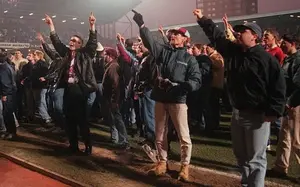
Furious supporters disrupted two home matches against Everton and Arsenal by conducting pitch invasions in protest at the scheme, while they also held post-match demonstrations. A combination of poor sales - only 808 fans took up bonds - and anger among supporters forced West Ham to back track and announce that the purchase of a bond would no longer be required to buy a season ticket. Interestingly, the 808 bond holders were given priority to choose their seats at the Olympic Stadium - their home ground for next season.
Ashley Out
When Mike Ashley bought a controlling stake in Newcastle United in 2007, he was initially a popular figure amongst fans, watching matches from the stands in a club shirt. Things soon turned sour following manager Kevin Keegan's resignation in September 2008, which led to prolonged protests by fans directed against Ashley and director of football Dennis Wise, who were dubbed the "Cockney Mafia". Less than two weeks later Ashley put the club up for sale, stating: "I have listened to you. You want me out. That is what I am now trying to do." Despite his best efforts, Ashley could not find a suitable buyer and that December announced that the club was no longer for sale.
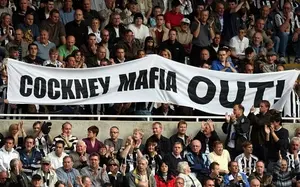
Having ridden out a storm to rename the club's home ground "sportsdirect.com @ St James' Park Stadium", Ashley was again on the receiving end of fans' protests in 2015 with supporters complaining about a lack of ambition and investment from the owner. The result was a change in recruitment policy that saw them spend £80m on transfers during the 2015/16 season.
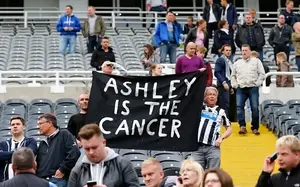
Chicken farmers not welcome
An Indian poultry company seemed an odd fit for owners of a Premier League club but in November 2010 the Venky's took charge of Blackburn Rovers after buying 99.9 per cent stake in the club. Within months the club were linked with moves for Ronaldinho and David Beckham, but ended up with the likes of Ruben Rochina and Mauro Formica instead.
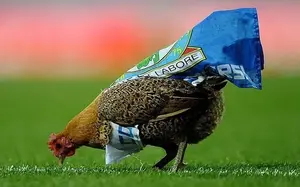
Protests against the manner in which the Indian owners were running the club began around a year later with the Blackburn Rovers FC Action Group staging a 24-hour protest outside Ewood Park urging the owners to "engage with the club's stakeholders or sell the club". When the owners banned protest banners from the ground, supporters organised a plane to be flown over Ewood Park reading "Steve Kean out" in reference to the club's manager. Kean resigned soon after but the Venky's remain as the club's owners.
The rest
There is an almost never-ending list of football protests. Coventry fans boycotted their team's matches at Northampton Town's ground after they agreed a ground share for the 2013/14 season; Arsenal fans have protested against ticket prices through groups such as Red Action and Black Scarf; Liverpool fans fought against the ownership of George Gillett and Tom Hicks; Manchester United supporters battled a proposed takeover by Rupert Murdoch in the late 1990s; And so on, and so on, and so on. Power to the people... sometimes.
- Telegraph